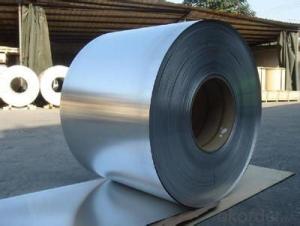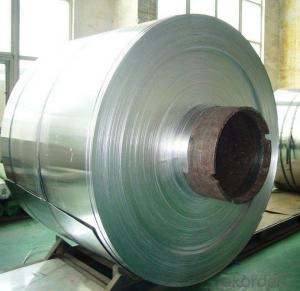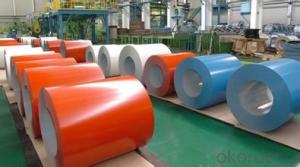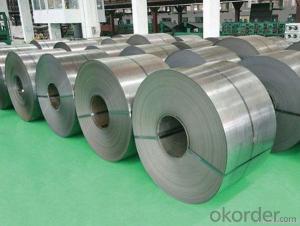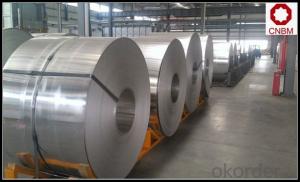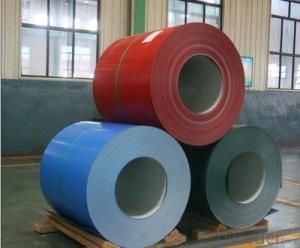3003 H14 Aluminum Coil - Aluminum Rolls in Good Quantity, SGS Certificated
- Loading Port:
- Shanghai
- Payment Terms:
- TT OR LC
- Min Order Qty:
- 5 m.t.
- Supply Capability:
- 100000 m.t./month
OKorder Service Pledge
OKorder Financial Service
You Might Also Like
1.Structure of Aluminum Rolls in Good quantity:
Aluminum Rolls in Good quantity is designed for many field such as electronics, instruments, lighting decoration, packing industry, and house decoration, curtain wall, honeycomb-core panel, sandwich panel, aluminum composite panel, aluminum composite pipe etc.. Aluminum Rolls in Good quantity is hard and everlasting under the blazing sun. You can choose the alloys as your habitation and we will do our best to meet your requests.
2.Main Features of the Aluminum Rolls in Good quantity:
• Smooth surface
• High manufacturing accuracy
• High strength of extension and yield
• Well packaged
• No marks, no scratch, no excessive oil
3. Aluminum Rolls in Good quantity
Alloy: | AA1050, 1060, 1070, 1100, 3003, 3004, 3005, 3105, 5052, 5083, 5754, 8011, 8006 |
Temper: | H14, H16, H18, H22, H24, H26, H32, O/F |
Thickness: | 0.2-100mm |
Width: | 30mm-1700mm |
4. Usage of Aluminum Rolls in Good quantity
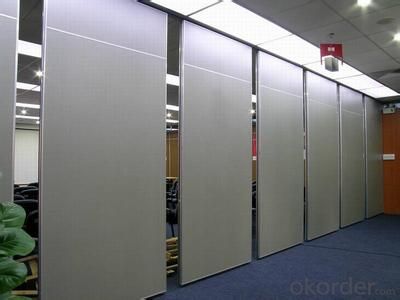
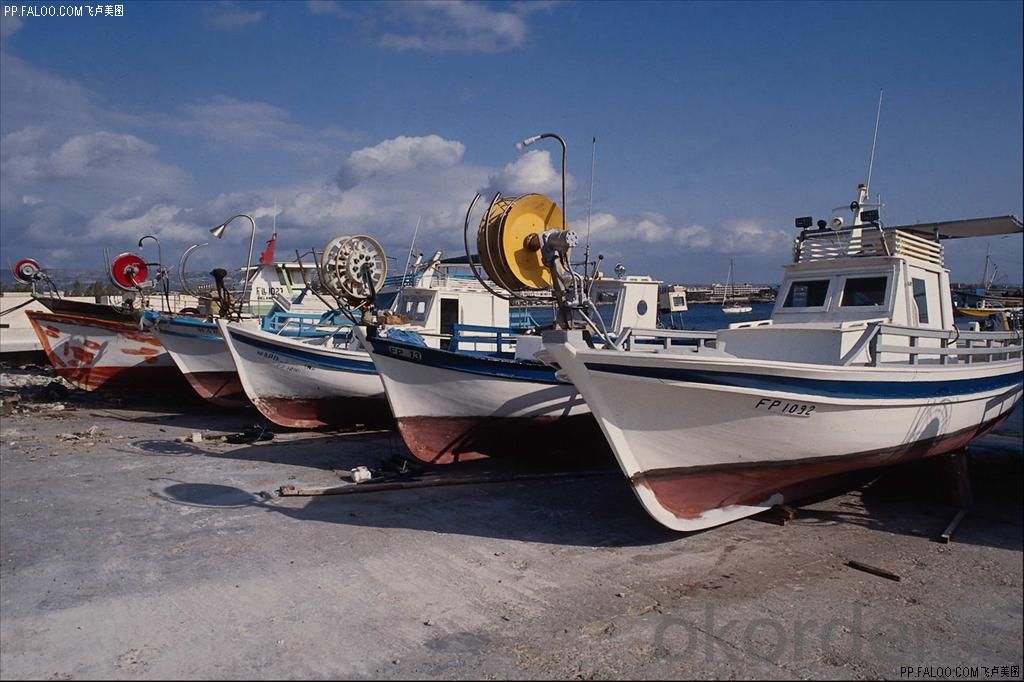
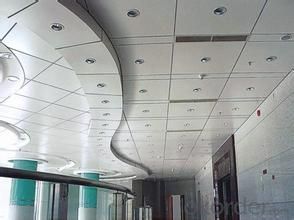
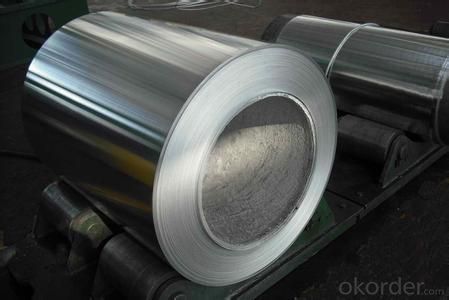
5.FAQ
We have organized several common questions for our clients,may help you sincerely:
① How about your company?
A world class manufacturer & supplier of aluminum coil and alloy blanks. Aluminum production base is comprised of 18 aluminum annealers, 10 coil and foil mills, 4 continuous production lines, 2 hot rolling production line and 3 prepainted lines.
Export 5000 tons per month to Asia, America and Middle East. Always do the best for our clients.
②Can you guarantee the quality of the products?
We are responsible for the quality of materials to get a long-term cooperation with clients in a reasonable period of time and we are glad to arrange and coordinate any third party inspection for you.
③What is the delivery time after purchase?
35 day after receiving client’s deposit or correct LC
- Q: Can aluminum coils be used in the production of aluminum wire?
- Aluminum wire production can utilize aluminum coils as a starting material. To create aluminum wire, aluminum rods or bars are drawn or extruded through dies to decrease their diameter and increase their length. Aluminum coils, which are continuous rolls of aluminum sheet or strip, can serve as the initial material for this procedure. Initially, the aluminum coils are unwound and introduced into the wire production line for further processing. They undergo annealing, cleaning, and are then fed through a series of drawing dies to reduce their diameter and increase their length until the desired wire gauge is achieved. Consequently, aluminum coils prove to be an efficient and cost-effective starting material for aluminum wire production.
- Q: Can the color coated aluminum roll be bent easily and won't break?
- As an ornamental material, it has the incomparable advantages of the following products. It can be guaranteed to be durable at least for 30 years after being treated with special surface. It is durable and has super weatherability. Fluorocarbon coating aluminum coil is made of fluorine enyne fluorocarbon resin as basic monomer, acid and alkali corrosion resistance, friction resistance and its decay, compared with plastic coating, molecular structure, sun room, bright and smooth: product classification, UV absorbers can be divided according to the gloss matte and high gloss series.
- Q: Is it possible to utilize a press machine to bend aluminum coils?
- <p>Yes, you can use a press to bend aluminum coils. Presses are versatile machines capable of bending various materials, including aluminum. However, it's crucial to select the appropriate press type and size for the specific coil dimensions and desired bend. Additionally, ensure the press has the necessary tonnage to handle the bending force required for aluminum. Using the right dies and lubrication can also improve the bending process and prevent damage to the coils. Always follow safety guidelines and consult with equipment specifications to ensure the press is suitable for bending aluminum.</p>
- Q: What is the maximum coil weight that can be produced?
- The maximum coil weight that can be produced depends on various factors such as the type of material being coiled, the dimensions of the coil, and the capacity of the coiling equipment. Without specific details, it is difficult to provide an exact answer.
- Q: We have all heard the Us saying aluminum and their euro counterparts saying aluminium. I assumed this was just a small difference in culture or location. But, while reading my chemistry book (Chemistry the Central Science 12th) i came across a section saying: Cations formed from nonmetal atoms have names that end in -ium: NH4+ ammonIUM ion, H3O+ hydronIUM ion. So, i have came up with a hypothesis, could it be possible that when the periodic table was coming together, the aluminium was changed to aluminum to allow the rules to work? Thus making aluminum the correct spelling? Give me your thoughts.
- It just depends on which side of the Atlantic Ocean you live. Come to think of it though, most metals end in ium. Not just the ions.
- Q: What are the surface treatment options for aluminum coils?
- Some common surface treatment options for aluminum coils include anodizing, painting, powder coating, and laminating.
- Q: metals an aluminum can is made of, cast aluminum, 6160 aluminum, sheet aluminum
- the aluminum is alloyed with various metals to change the characteristics of the aluminum the link below shows a table showing the various chemical/metals added to aluminum to make different alloys
- Q: How are aluminum coils priced in the market?
- Several factors determine the pricing of aluminum coils in the market. The primary factor is the current market price of aluminum, which is influenced by global supply and demand dynamics, production costs, and currency fluctuations. The cost of processing and manufacturing aluminum coils also contributes to their pricing. This includes expenses such as refining, alloying, rolling, and any other specialized processes involved in production. The cost of energy, labor, and raw materials used in the manufacturing process also plays a role. Market competition and overall demand for aluminum coils also influence their pricing. If demand is high and supply is limited, prices are likely to be higher. Conversely, if demand is low and supply is excessive, prices may be lower. The size, thickness, and quality of the aluminum coils also affect their price. Thicker, larger, and higher-quality coils generally command a higher price due to increased material and processing costs. Additionally, transportation costs, import/export duties, and taxes imposed by different countries can impact the pricing of aluminum coils. These additional costs are usually included in the final price of the product. In conclusion, the pricing of aluminum coils in the market is determined by the current market price of aluminum, production costs, market competition, demand and supply dynamics, size and quality of the coils, as well as additional costs associated with transportation and taxes.
- Q: What are the various applications and purposes of aluminum coil in different industries?
- <p>Aluminum coil is widely used in numerous applications due to its lightweight, corrosion resistance, and high strength. It is commonly used in construction for roofing and siding, in the automotive industry for body panels and heat exchangers, and in the packaging industry for food and beverage cans. Aluminum coil is also utilized in electrical applications such as transformers and wiring, and in the manufacturing of everyday items like foil and cookware. Its versatility makes it a popular material in various industries.</p>
- Q: i am thnking of building my own aluminum john boat and using the propulsion from a jetski to power it, i was wondering if anyone had taken on a project like this and had a few pieces of advice to offer while i am still in the planning stages. the biggest concern i have right now involves the tunnel for the intake, should i use the original fiberglass from the jetski or build up a tunnel out of aluminum for it?
- While I have not built a john boat of aluminum, I have built or fabricated a lot of other things. If this were my project, and as it is the scoop you are talking about, not the tunnel itself. Aluminum is one of the most expansive metals, and I do not see you being able to seal a fiberglass/aluminum interface with much promise of it holding long term. I would fabricate or mold a new one of aluminum so it would have the same expansion rate as the metal around it. Electrolysis is not an issue, but I think the thermal expansion difference would be on the seals. good luck on your project, sounds fun.
Send your message to us
3003 H14 Aluminum Coil - Aluminum Rolls in Good Quantity, SGS Certificated
- Loading Port:
- Shanghai
- Payment Terms:
- TT OR LC
- Min Order Qty:
- 5 m.t.
- Supply Capability:
- 100000 m.t./month
OKorder Service Pledge
OKorder Financial Service
Similar products
Hot products
Hot Searches
Related keywords
